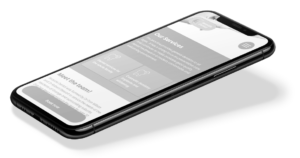The technological advancements in mobile technology have revolutionised the way we live. It has changed the way companies do business, forcing a major shift in many operations within a company. With nearly three billion people owning a smartphone and access to mobile apps, the app market has become king.
Recent events have created a boom for app developers, with many businesses now forced to contend with conditions of a pandemic. Staying connected to their customers is now the main concern, which has meant that having a mobile app, through which you can interact with your target market, is a requirement.
The challenge here is that there are nearly limitless options when it comes to app development. There are dozens of programming languages currently in use out there, an infinite number of ways an app can be designed, and countless other considerations app developers and businesses alike must contend with.
As such, we have created this guide to app development to help your business figure out what type of app would be suitable in order to keep abreast of technological advancements.

The Different Types of Mobile Apps
The three different types of mobile applications are (1) native apps, (2) web-based apps, and (3) hybrid apps. Each kind has its own pros and cons, which we will cover in this section of the guide.
1. The Native App
App developers create these apps for a specific platform or operating system. If an app is designed for iOS, that means it will not run on Android devices without additional programming to enable the Android phone to run it.The benefit of this, however, is that the Native Apps are efficient in utilising the hardware included on the devices. If your app will need the use of GPS, cameras, and so on, then Native Apps are a good choice. Native Apps are perfect for social media platforms and games with high-end graphics.
2. The Web-Based App
Web-based apps are accessible through mobile browsers and are coded specifically to adapt to every device they’re on. That makes them a versatile option if your app does not have heavy hardware requirements. Quora which is an American question and answer website, for instance, uses a web-based app, giving it the same UI all across all the platforms.
These are great for businesses who want to have a one-stop application for all devices and platforms. They are also better for businesses with limited budget and resources. However, the ease of management and use comes at the expense of sacrificing access to the features of devices to their full potential, unless some specific codes are written. Their features are also limited to the features of a mobile browser.
3. The Hybrid App
Hybrid apps seek to combine features across all devices. They are designed to be compatible across multiple channels and platforms, combining the benefits of native apps and web-based apps simultaneously. These apps can be run on web browsers as well as mobile browsers and are able to be used with any operating system.
These are good for apps that don’t need to use all the hardware features of a device but would like to deliver a better UI. Some well-known hybrid apps are Gmail, Uber, Instagram, and Twitter. The Hybrid Apps are also popular among eCommerce companies.
Final thoughts
The first thing you need to know before deciding on whether your app should be native, web-based, or a hybrid is what your end result should look like and the purpose of your app. Do you need better graphics? GPS? Cameras? By understanding what you want your app to do, you can make better choices and clarify your requirements and needs with your app developer.
If you need the help of an app developer in Adelaide, get in touch with the App development team at Digital Noir. We offer beautifully engaging digital experiences for both businesses and individuals.



